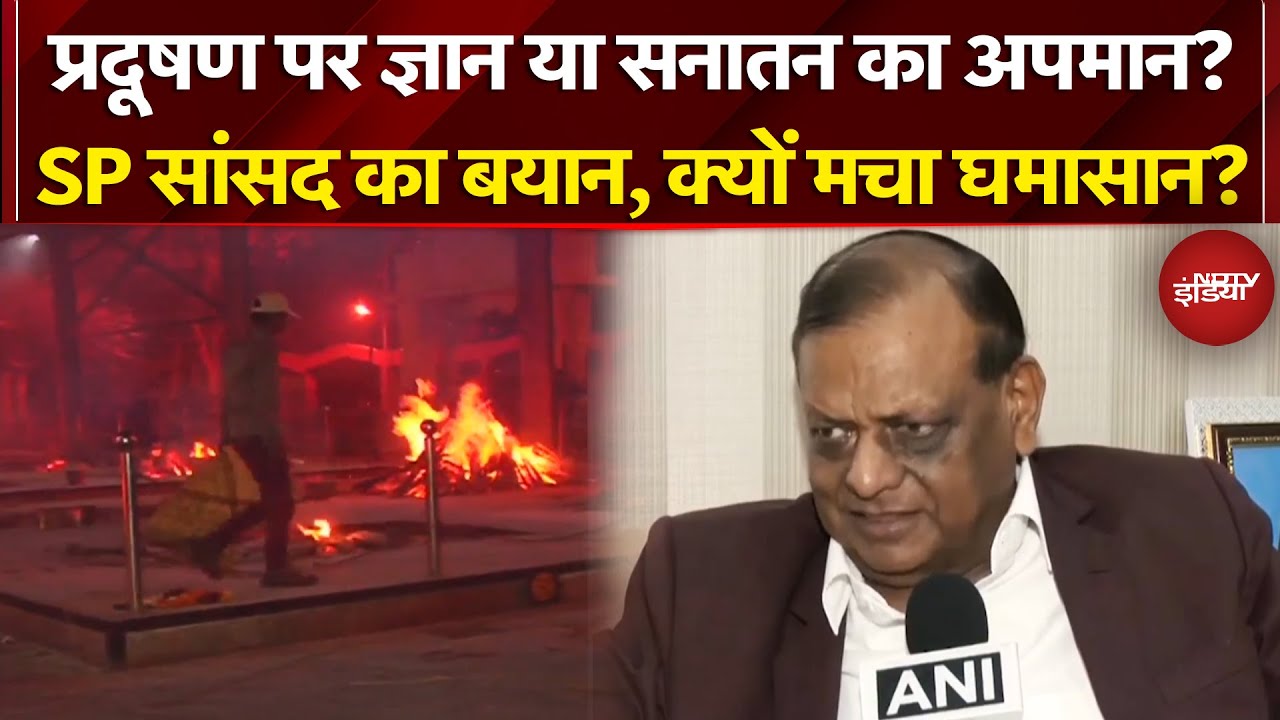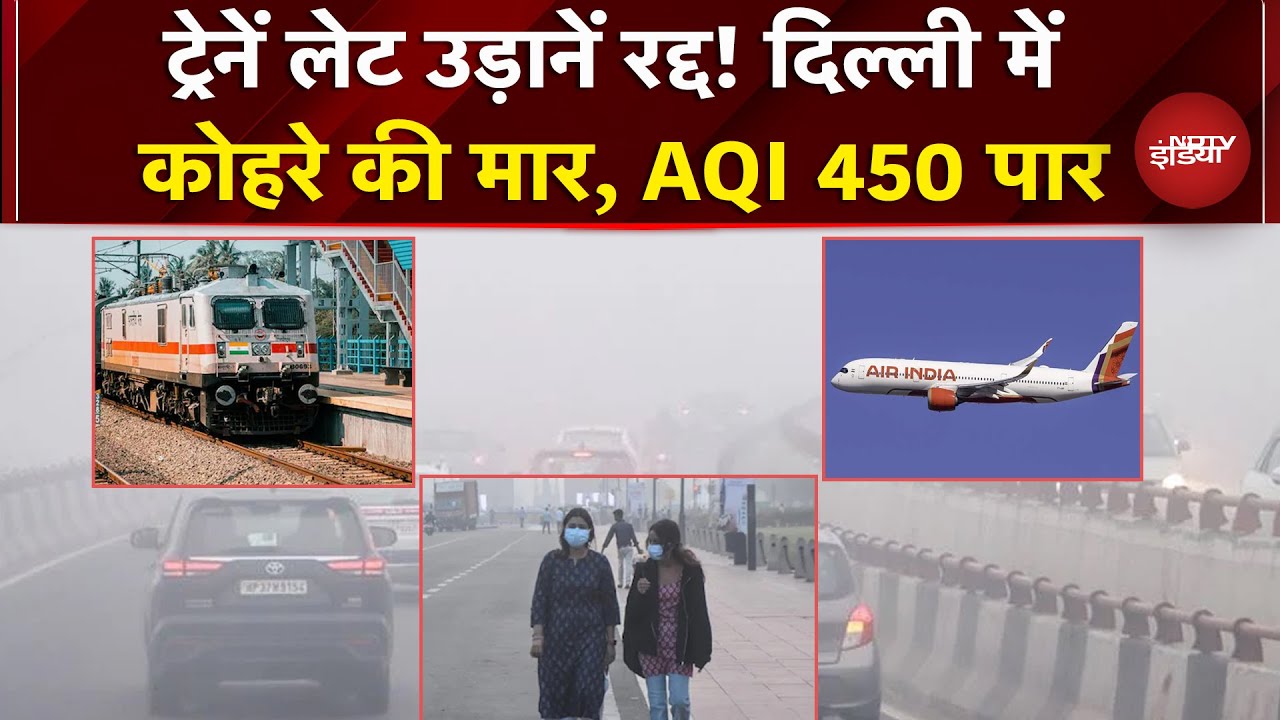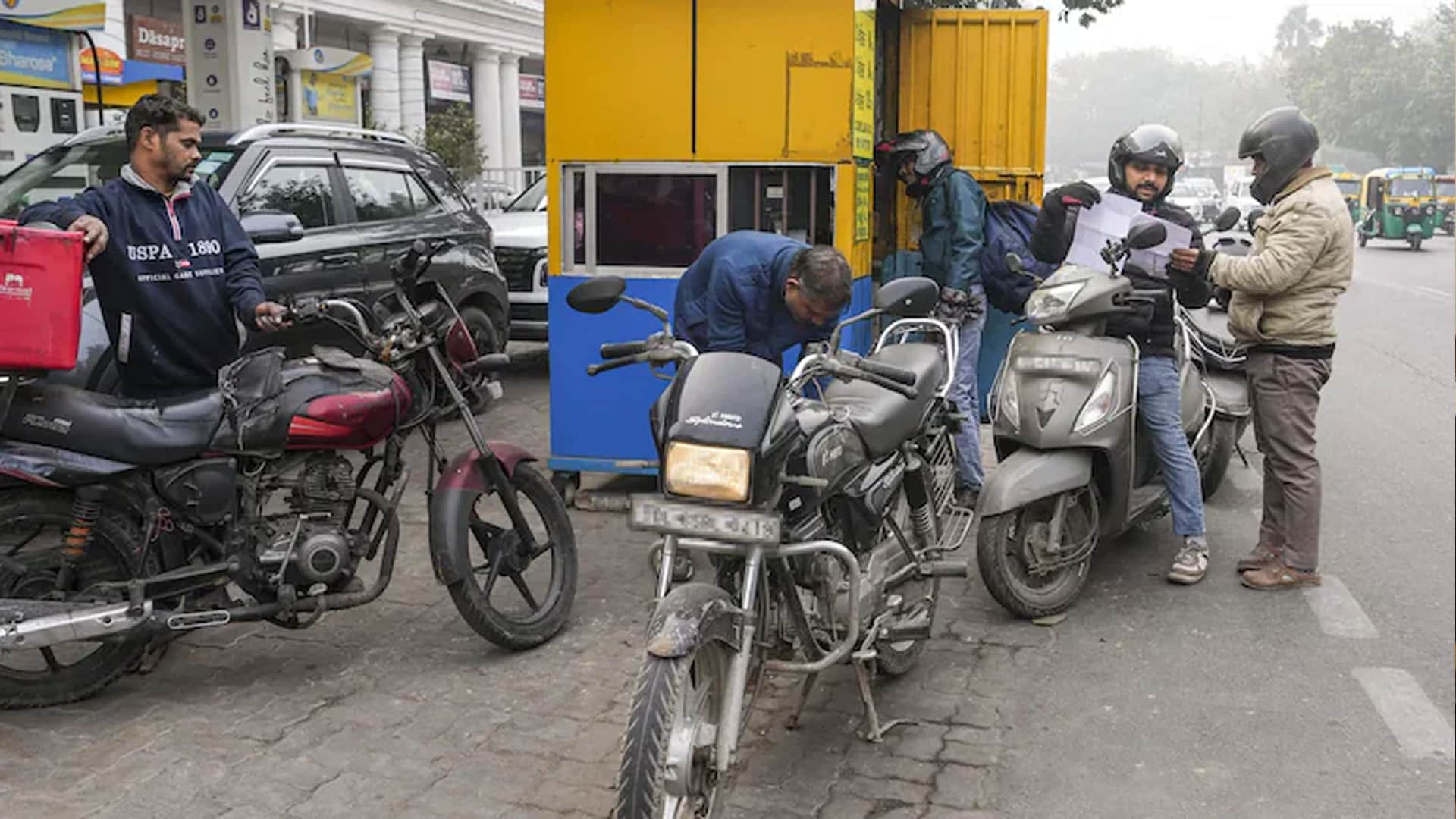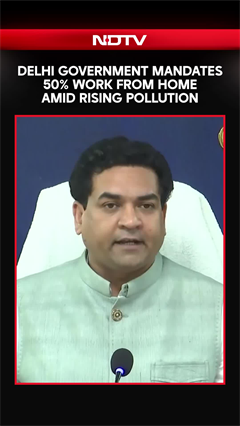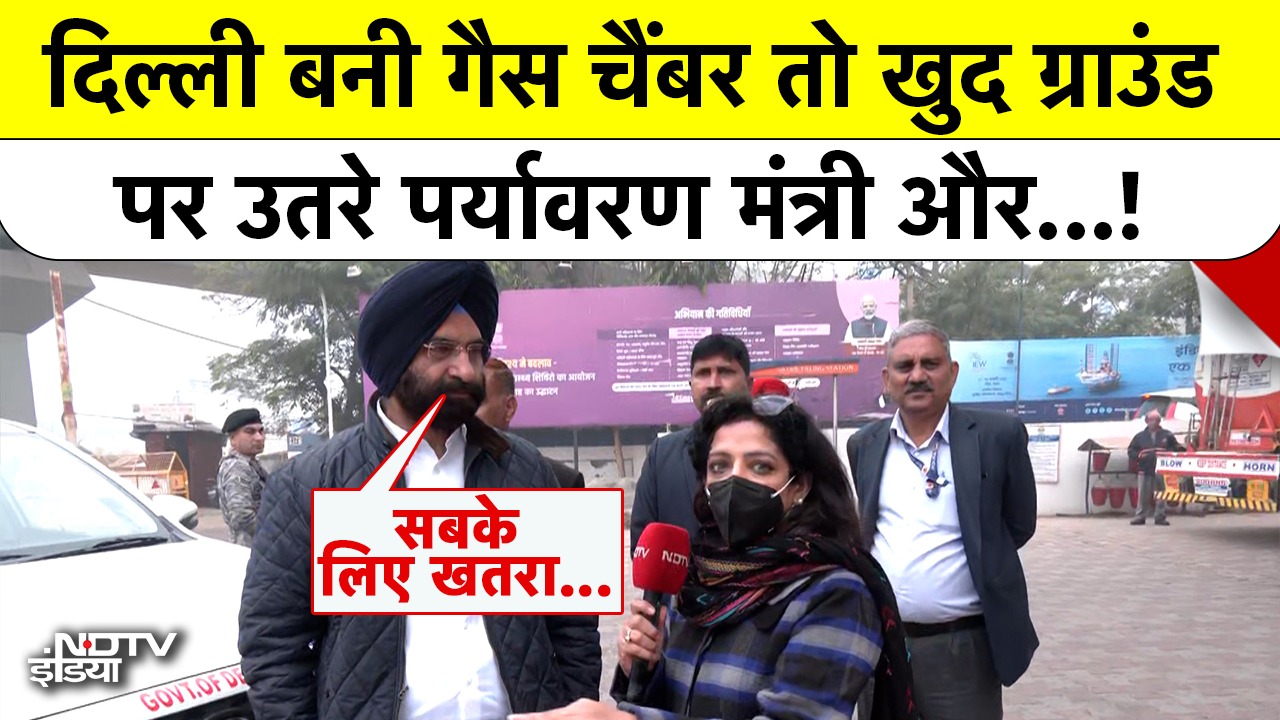- Home/
- Centre's Action Plan To Check Air Pollution In Delhi Takes Effect
Centre's Action Plan To Check Air Pollution In Delhi Takes Effect

The Graded Response Action Plan -- a set of anti-air pollution measures implemented in Delhi-NCR during the winter -- came into effect on Sunday.
The Commission for Air Quality Management (CAQM), an autonomous body tasked with improving the air quality in Delhi and its adjoining areas, made crucial changes to the Graded Response Action Plan (GRAP) last year and again in July.
The new changes include strict restrictions on the plying of overage vehicles and a complete ban on the use of coal and firewood in eateries, restaurants and hotels when the Air Quality Index (AQI) breaches the 200 mark.
BS-III petrol and BS-IV diesel four-wheelers will be immediately banned in Delhi and Gurugram, Faridabad, Ghaziabad and Gautam Buddh Nagar if the AQI crosses the 400-mark.
The CAQM, a statutory body formed under an Act in 2021, amended the GRAP in 2022 to ensure proactive implementation of anti-air pollution steps based on forecasts up to three days in advance.
Earlier, the authorities would implement these measures, including a ban on construction and demolition, entry of high-emission vehicles and the use of coal and firewood, only after the pollution level touched a particular threshold.
The GRAP for the National Capital Region (NCR) is classified under four different stages of adverse air quality in Delhi: Stage 1 - 'poor' (AQI 201-300); Stage 2 - 'very poor' (AQI 301-400); Stage 3 - 'severe' (AQI 401-450); and Stage 4 - 'severe plus' (AQI >450).
The revised GRAP recommends strict enforcement of the orders of the Supreme Court and the National Green Tribunal on overage diesel and petrol vehicles under Stage 1.
It also calls for a complete ban on the use of coal and firewood in eateries, restaurants and hotels as soon as the AQI crosses the 200 mark. Earlier, the authorities would implement this measure under Stage 2.
New steps suggested as part of the revised GRAP include "strict action to curb air pollution at all identified hotspots in the region under Stage 2".
Under Stage 3, states will have to impose strict restrictions on the plying of BS-III petrol and BS-IV diesel four-wheelers in Delhi and Gurugram, Faridabad, Ghaziabad and Gautam Buddh Nagar. The authorities may discontinue physical classes in schools for children up to Class 5 in such a scenario, the CAQM suggested.
At AQI above 450, four-wheelers registered outside Delhi, other than electric vehicles and those using CNG and BS-VI diesel, will not be permitted to enter Delhi. However, those carrying essential commodities or providing essential services are exempt.
All other existing measures taken under different stages of GRAP will continue.
The CAQM on Saturday said Delhi-NCR recorded an average AQI of 167 from January 1 to September 30, the second-best for the corresponding period in six years.
Better air quality during this period was recorded only during the pandemic-affected 2020. In 2022, 2021, 2019 and 2018, the average AQI during this period ranged from 180 to 193.
The CAQM has also granted a three-month reprieve for the use of diesel generator sets in nine critical categories of emergency services, easing concerns over power disruptions in essential sectors in NCR.
It had earlier said the ban on diesel generators, imposed every winter to mitigate air pollution, would also cover essential services.
(This story has not been edited by NDTV staff and is auto-generated from a syndicated feed.)
also read
Thick Smog Blankets Delhi, Flight, Train Ops Hit, Air Quality Likely To Worsen
Edited by Aastha AhujaDelhi Government To Install Air Purifiers In 10,000 Classrooms As Pollution Soars
Reported by Ishika Verma, Edited by Amit ChaturvediBattle For Breath: Mumbai's Elite Enclave Turns Pollution Hotspot
Reported by Jitendra Dixit, Edited by Srishti Kapoor
Latest Stories
- Edited by Aastha Ahuja | Saturday December 20, 2025 , New Delhi
The national capital, Delhi, woke up to a thick layer of smog blanketing the city with the Air Quality Index (AQI) at 380, falling under the 'very poor' category.
- Reported by Ishika Verma, Edited by Amit Chaturvedi | Friday December 19, 2025
The government plans a phased rollout, funded through the environment cess, though exact installation timelines have not been announced.
- Reported by Jitendra Dixit, Edited by Srishti Kapoor | Friday December 19, 2025
Air quality in and around Bhakti Park and Wadala Truck Terminal (TT) has plummeted in recent weeks, with AQI levels soaring beyond 300 - classified as "severe".
- Edited by Astitva Raj | Friday December 19, 2025
His post quickly became popular among people who have experienced similar health and safety concerns while living in Delhi.
- Press Trust of India | Friday December 19, 2025 , New Delhi
Commuter awareness rises after Delhi's BS-VI and No PUC, No Fuel enforcement; fuel sales dip in border areas, PUC queues remain steady, says DPDA president.
................................ Advertisement ................................
Latest Videos
Opinion
Blog | Well Done, Delhi. You've Turned Lung Sacrifice Into A Badge Of HonourSaikat Kumar Bose
Monday November 10, 2025Till some years back, Delhiites would ask angry questions to those in power about the capitals annual tryst with toxic air. This has changed. Those in the driving seat dont see the need to answer now.
Opinion | Why Indians Have Just Given Up On Air Pollution CrisisTanushree Ganguly
Friday December 20, 2024While some may argue that people in Delhi are now more aware of air pollution than they were a decade back, my rebuttal would be that awareness does not mean that people are concerned.
Opinion | You Must Outrage Over Filthy Air More Than Once A YearJyoti Pande Lavakare
Tuesday December 10, 2024Delhi welcomed us with monsoon rains and mangos. We were home. Fast forward a couple of years, in the winter of 2012, I found myself in denial about something other parents, mostly expats, were calling toxic air.
Opinion | Delhi's Air Pollution Situation Is Like A Bad MarriageNishtha Gautam
Friday November 22, 2024On a good day, such as today, the AQI reading in Delhi is 407. We are jubilant at the sickly sunshine trickling through the slightly dissipated smog. At least its not 1600.
दिवाली... पराली... सियासी जुगाली!Ashwini kumar
Monday November 18, 2024दिल्ली-एनसीआर में प्रदूषण का समाधान तो आज तक मिला नहीं. हर साल चिंतित होकर हम-आप सांसों की तकलीफ के साथ-साथ दिल और ब्लड प्रेशर के मरीज भी क्यों बनें?








